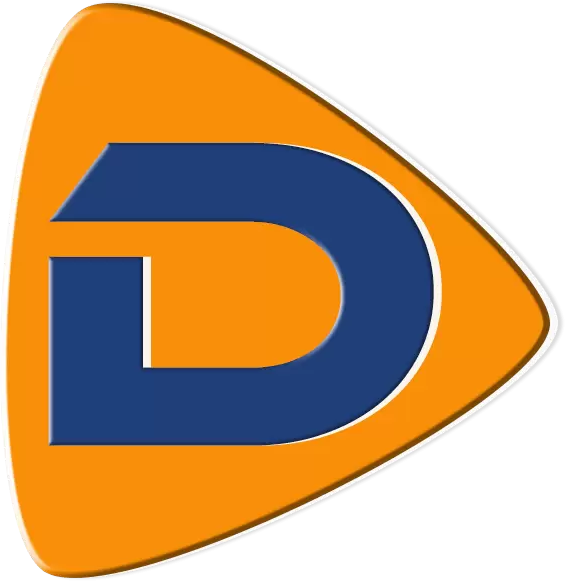
Blockchain is a big deal. Cryptocurrencies have definitely had an impact on the way we transact and store value. Blockchain technology is becoming the go-to platform for digital currencies like Bitcoin and Ethereum.
But blockchain is so much more than just digital currencies. It’s a new kind of digital currency that’s emerged in recent years with the promise of processing billions of dollars in transactions per day, without any central authority or middlemen.
These are some of its key features: decentralized; flexible; tamperproof; public searchable ledger; and secure by design, allowing for international payments, fast confirmations, and low fees.
However, it is still in its early days and has a long way to go before it’s ready for mainstream adoption. As a result, blockchain development is booming as developers race to create the most advanced applications that will be the foundation of this new digital economy.
Whether you’re just getting started with blockchain or you want to understand how it will change your industry. This article lists the top 7 programming languages for blockchain app development.
What is blockchain Programming Language?
Blockchain technology, being a young and upcoming field, is still in its infancy. As such, most programming languages do not yet have the necessary tools to support the technology, making it difficult or even impossible to create blockchain-based applications.
This leaves many developers in a bind; they either have to choose between using a technology that is too complex for their application and using a language that may not be suited to their specific needs, or they can use a language that is too simple for their application and use a more complex language in its place.
Most programming languages fall short in one or more areas when used for blockchain development. For example, Java’s safety and robustness, and C’s performance fall short of what’s needed for the job. So, the need for a specialized language emerges. There are many programming languages that have been developed specifically for blockchain technology.

1. Java: The Future of Blockchain Development?
There is a huge network effect in blockchain technology, which makes it a more attractive ecosystem for application development than other industries.
While AI, MRP, and blockchain are still at a nascent stage, there are signs of growth in the field of blockchain application development. This is mainly due to the growing popularity of the Java programming language.
2. Solidity Language
Like the rest of the technology stack, the world of blockchain and smart contracts is still in its infancy. However, the language that is helping shape this technology is called Solidity.
It is a Turing complete language that enables high-level programming for blockchain applications. Looking at the language from the point of view of an Android developer, the Solidity language is similar to Java, C, and C++.
That is why it is so easy to pick up and use. However, there are some key differences that make it a more suitable language for blockchain development: –
- Unlike C++, Solidity doesn’t have any runtime type checking. This means that if you write code that contains mistakes, it will run without any hang-ups.
- Unlike Java, Solidity doesn’t feature any type-safe APIs. This means that you must be careful about how you are handling data types. You don’t want to make a mistake and give data types to the computer that isn’t meant for your code.
- Unlike C, C++, and Java, there is no sign of blockchain growth in the field of software development. This is mainly due to the high learning curve involved in using new technologies.
- While the language may not be as hype-inducing as other technologies like AI, it is still a good fit for developers who want to get into theorizing and writing smart contracts.
3. C++ language
Unlike the other two languages mentioned above, C++ is quite old. However, due to its widespread usage, it has plenty of support in the field of blockchain development. It is also a fairly standard programming language that is easy for new programmers to pick up.
One of the most important aspects of C++ is the standard library. This is a collection of useful tools and functions that can be used by any application.
Unlike Java, which is reserved for high-level development and businesses, C++ supports the full blockchain ecosystem. This means that if you decide to focus on just one blockchain, the language of choice will be C++.
4. Python language
Like C++, Python language has been with us for a long time. What sets it apart from other programming languages is its versatility. This makes it ideal for a wide range of applications, not just blockchain development.
Like most languages, the syntax of Python is very flexible. This means that it doesn’t constrain you to specific problem domains. You can use it to process data from different sources, make quick calculations, or even create games and apps.
One of the most significant advantages of language is its central role in the ecosystem of modern technologies. This means that the technologies have a chance to evolve and improve, which makes the language a good fit for today’s developers.

5. Ruby language
Ruby is a language that is both powerful and easy to pick up. This makes it a popular choice for startups that are just getting started in the industry. It is also used by tech-savvy individuals who want a more human-readable language to communicate with computers.
Like most programming languages, Ruby is object-oriented. That is, data is categorized into classes, and each class represents a specific topic or functionality.
The difference between Ruby and other languages is that the language supports the implementation of consensus algorithms that are unique to blockchain technology.
6. Go language:
Like all the other programming languages mentioned above, Go is also object-oriented. However, unlike them, Go is not restricted to the realm of business. It can be used for any form of application that requires flexibility and scalability.
While the other languages mentioned above are relatively new, Go has been in use for over 40 years. This means that it is quite seasoned when it comes to dealing with corporate applications.
Furthermore, it has also evolved from a simple language to a higher-level language with powerful tools.
7. C# Language
C# is a close relative of Java and C++. Like them, it too is a language that is used to write the high-level code that runs on servers.
Unlike them, however, C# is optimized for unity between hardware and software. This means that regardless of which device you’re using to run your code, it will run exactly the same way.
That is why it is used in a variety of different apps, from robotics to IoT devices. Moreover, it also has an easy-to-use ecosystem with a large community of developers.
Conclusion
It is significant to note that blockchain technology is still in its infancy. This means that it has a long way to go before it is ready for mainstream adoption.
The cryptocurrency industry is exploding, with Bitcoin and its many competitors hitting new all-time highs each day. As a result, blockchain development is booming as developers race to create the most advanced applications that will be the foundation of this new digital economy.
To conclude, there are many benefits to developing applications using blockchain technology. But, before you jump into developing an application that uses the technology, it’s important to have a strategy to meet the challenges that lie ahead.





